During this pandemic semester, I taught three courses, and one was a new prep: Introduction to Media Studies. With thirty-two great students, we began by studying foundational texts and concepts, which culminated in a challenging midterm exam.
In the second half of the course, students applied that new knowledge to readings on a variety of media topics. We explored the origins of the Internet, if social media is good for us (and democracy), what it feels like to watch television during a pandemic, the growth of esports, advertising’s response to COVID-19 and Black Lives Matter, and how to combat misinformation in the news.
In the second half of the course, students also merged theory and practice in a deeply self-reflexive way, as they completed a Media Diet Journal. They answered a series of questions each week on a new aspect of the media they consume, and in some cases, produce too. (Find a complete list of these weekly questions at the end of this post.)
After students completed their journal, they then created a visual representation (of their choice!) that summarized their current media diet and who they feel they are as a media citizen.
I’m delighted that several students—Julianne Tran, Sara Nasreldin, Monte Dunham, Kaley Core, and Maci Montgomery—gave permission for me to share their creations:
As you can see, students communicated their media diets in hugely creative and very different ways. Julianne, Sara, and Maci placed photos of themselves within their visuals. One of the things Julianne reflected upon was how much she enjoyed the material qualities of print media—like the novel size and texture of the newspaper—vowing to consume more of it. Sara placed herself in the center of her media diet collage, purposefully “glitching” from the feeling of overwhelm our media diets can cause, especially for herself as a “third culture kid,” as she lives, learns, and consumes media in Arabic, Turkish, Spanish, and English.
Picking up on media’s overwhelming qualities, Monte designed a suffocated media citizen, with mind, body, and limbs each full of various media forms and types. Like Sara did in a retro way, Kaley built her media diet into the stylistic interface of the Internet, emphasizing the positive verbs of her media life: relating, learning, sharing, and connecting. Maci created hers as a scrap-book-like collage, emphasizing the media and technologies, traditional and new, that make her who she is, and fuel the relationships she holds dearest.
Most students, and myself too, are a bit worried about how much time we spend on our phones and on social media. Hopefully over the break, we’ll each take some time to unplug, relax, and restore. No matter what, I’m so thankful to have taught and learned alongside these students and look forward to the next time I’ll teach this course.
Media Diet Journal Assignment
In this class, 15% of your course grade comes from completing a Media Diet Journal. I recommend that you create your Journal as a Word file or Google doc and add to it throughout the second half of the semester. Your Journal should reflect sincere and focused engagement and reflection with each day’s question prompts. You do not need to write an essay or even in complete sentences, but you should record complete thoughts. For each day of assigned journaling, you should write at least 1-2 single-spaced pages.
Media Diet Questionnaire #0: How to Start Assessing Your Media Diet
- What is your current “media diet”? Brainstorm a list of all the types and forms of media you consume during a typical day or week.
- How much time do you spend consuming media in a day or week? Are there particular times of day you’re active with media?
- Why do you consume media? For example, for entertainment, information, boredom…
- Do you participate in creating media in any way? How so?
- What devices, or other forms of technology, do you use to consume (and create) media? Is it always via a screen?
- How does consuming and/or creating media make you feel emotionally, mentally, and/or physically?
- How does your typical media diet engage with issues of identity, justice, and equity?
- To what degree does your typical media diet include a global perspective?
- As you’ve answered these questions, does anything in your media habits surprise you? What patterns did you see emerging?
Media Diet Questionnaire #1: The Internet & Social Media
- Following the Public Books 101 podcast, what does being on the internet in 2020 feel like to you?
- How old were you when you first “connected to” the internet?
- How do you experience the internet? Do you “surf”? Is it an integrated part of your life? Do you use it like a utility to log on, do certain things, and then log off?
- If you had to go without internet or WiFi access for a period of time, such as a day or a week, that wasn’t a conscious “digital vacation,” how would that make you feel? Why do you think that is?
- Would you ever consider quitting social media and/or the internet? Why or why not?
- What social media accounts do you have? How and for what do you use them? What purpose do they serve in your life?
- What kind of content do you consume, produce, and share on social media?
- How old were you when you got each of your social media accounts?
- How is your social media and Internet use part of your experiences with boredom?
- For yourself, and more broadly, what are the pros and cons of using social media?
- Does social media help or hinder your social connections, online and IRL?
- How does your social media use shape how you use your smartphone (if you have one?)
- How do you physically relate to your (smart)phone? Is it always nearby during the day? Why? Where is your phone while you sleep?
- Beyond social media, what other apps do you use every day?
- Do you ever worry you (or people you care about) are “addicted” to your phone, social media, reading notifications, apps, etc.? How does this make you feel?
Media Diet Questionnaire #2: Television & Film
- When you think of “TV” or “television,” what’s the first thing that comes to mind?
- Did you watch TV as a child, and if so, what programs? Was your TV consumption monitored or limited by those who cared for you? What was the purpose of your TV viewing as a child? Is it different from what and why you watch TV now?
- On what device(s) do you currently watch TV programming? How does the device (phone, laptop, TV screen (small, medium, large, huge)) influence your experience with TV?
- What types or genres of TV programming do you routinely watch? What are your favorites and why?
- What TV networks, channels, or streaming services do you regularly watch? Which do you (or your family) subscribe to?
- Choose your favorite show. Look up the director, screenwriter, and other key production figures. Who are they? What else have they created? What’s their story? How does their identity shape the content they create, or not?
- How much time do you spend watching TV daily and/or weekly?
- How do you feel emotionally when you watch TV, and does it vary by time, programming, etc.?
- How do you feel physically when you watch TV? What position is your body in when you watch TV?
- What verbs describe how you interact with TV and films, and why? (e.g. watch, view, see, engage, consume, connect, etc.)
- When you watch TV or a film, do you engage fully in it or are you doing other things, like chatting, working, or looking at social media? If so, how does this distracted viewing shape your experience?
- How many movies/films do you watch per week?
- Before COVID-19, how often would you go to a movie theater to see a movie?
- What influences your decision to see a particular movie at the movie theater versus waiting for it to be a rental or on Netflix or downloading it?
- How is watching a film on a TV (or laptop) at home similar and different (emotionally and for your senses) to watching a film at a movie theater?
Media Diet Questionnaire #3: News & Journalism
- Do you read/watch/consume the news every day or most days of the week? Why or why not?
- Do you read/watch/consume the news at a certain time of day or does it just pop up all throughout your day?
- Where do you get your news? What devices, what formats? (e.g. TV, newspaper (online or print) social media, radio, podcasts, etc.) What outlets/brands? (e.g. Tulsa World, New York Times, CNN, Fox News, etc.)
- What sources do you think count as “good” or “quality” journalism? Why? What factors do you consider to assess if a source is trustworthy and accurate?
- How would you assess bias within the news sources you typically reference?
- What do you currently think and feel about current debates regarding “fake news?” What does that phrase mean? How is it marshalled, and by whom? Why does it matter?
- How much of the news stories you read are local versus national versus global?
- What do you think the pros and cons are of getting all or most of your news from social media?
- Do you read TU’s student newspaper, The Collegian? Why or why not? What do you think and feel about it? What stories resonate with you?
- Do you (or your family) subscribe to (i.e. pay for) any newspapers or journalistic magazines? Which ones? Why or why not?
- When you think of “a journalist,” who do you imagine? What do they do? What values motivate them? Relatedly, how are journalists represented in TV shows and films?
- Do you ever view yourself as a “citizen journalist” for stories you create and share?
- How does consuming the news make you feel, emotionally and in your body?
Media Diet Questionnaire #4: Advertising
- What media forms can advertising take?
- How do you notice, consume, and/or avoid advertising in your life?
- How would you describe advertising? For example, inspirational, persuasive, manipulative, informative—and why?
- How can you tell the difference between an advertisement and media content? Is it ever difficult to tell the difference? Why might that matter?
- Do you follow any influencers? Which ones, and why? How are their endorsements similar and/or different to more traditional advertising, like a TV commercial?
- Do you watch the ads during the Super Bowl? How are these ads similar and different to ads we see on TV throughout the rest of the year? Do you have any favorites that you can remember?
- How do ads shape and reflect identity, including categories like race, gender, sexuality, social class, religion, age, etc.?
- In your opinion, should brands and ads take a stand on social issues, such as the brands we read about endorsing Black Lives Matter? Why or why not?
Media Diet Questionnaire #5: Games & Sports
- Do you watch professional and/or college sports? Which ones, and why? Which are your favorites, and why?
- From what outlets (e.g. ESPN, blogs, Twitter) do you consume sports media? Which are your favorites, and why?
- How much time do you spend consuming sports media? Per day, week, or month?
- Do you play a sport? Which ones? How did you start and/or stop?
- What can sports reveal about power and identity—of the players, commentators, producers, team owners, audiences, etc. Think about gender, sexuality, race, class, citizenship status, etc. …
- Do you watch the Olympics? What do they mean to you as a viewer, a citizen, and perhaps as an athlete yourself?
- Do you have a favorite sports team of which you’d identify as a fan? Relatedly, how does a particular sports team (including a national Olympic team) affect how you feel about your city, state, and country?
- Do you play video games? Which ones? Do you have favorites? Do you play alone or with others? On what devices/platforms?
- How would you define “a gamer?” Do you identify as a gamer?
- What do you know about aspects of inclusion and exclusion, community and harassment within the gaming community?
- If you play video games, how do you feel emotionally and physically when you play?
- In your opinion, are esports, sports?
Media Diet Questionnaire #6: Books & Publishing
- Do you read books outside of what’s assigned for your classes? Why or why not?
- If you buy books, do you prefer to buy them in hardback, paperback, or a digital copy like on a Kindle? Why?
- How does it feel to hold a book in your hands, to turn the pages, to read through to the final page? How is it similar and different to read a book or a magazine in print versus from a screen? How does the reading experience feel?
- Is print dead? Generally, and to you?
- How do you feel and/or what do you think about buying books from Amazon?
- What do you think about local bookstores? Do you shop at them? Do you know the folks who own them and work there? What local bookstores can you frequent here in Tulsa? Or in your hometown?
- Do you have a public library card? Do you visit the library, check out books? What social, cultural, and civic purpose do libraries serve? How much (or little) of that is about books?
- Do you want to write, whether a book, article, or essay? Would you feel any differently about your work appearing in print versus online?
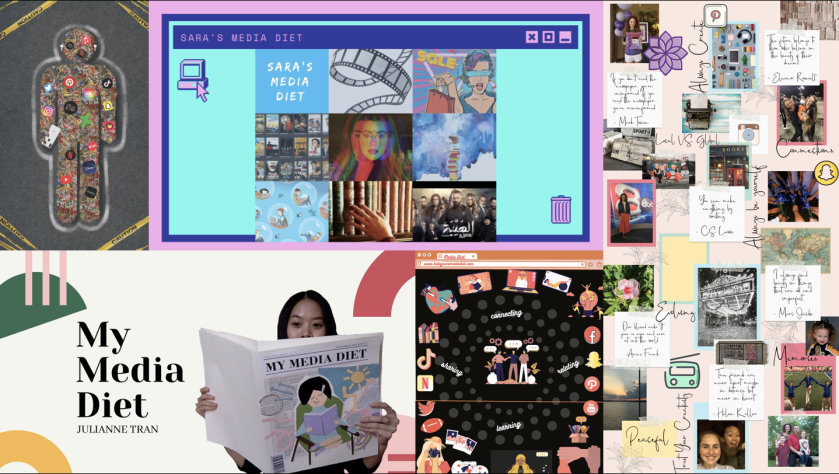
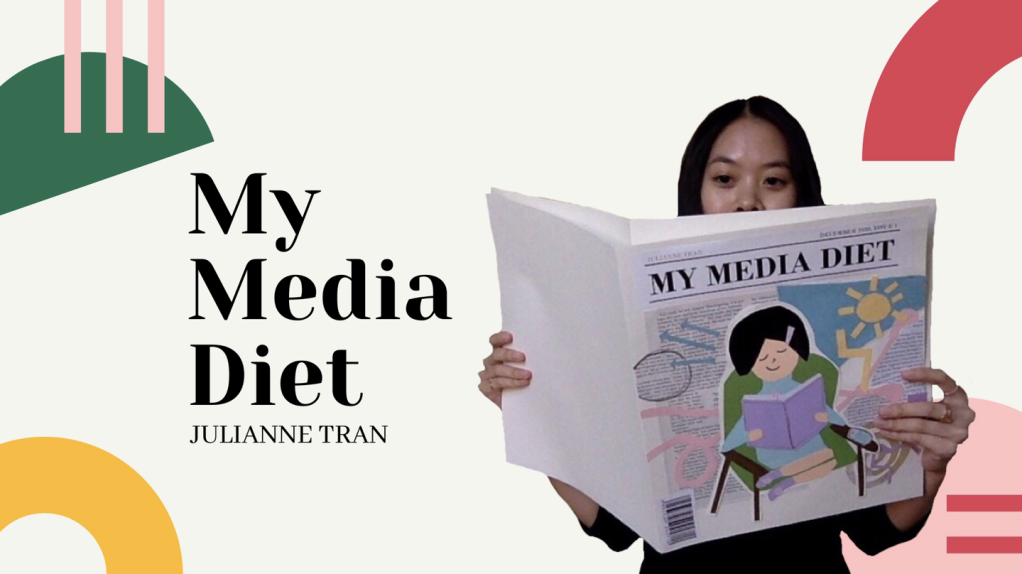
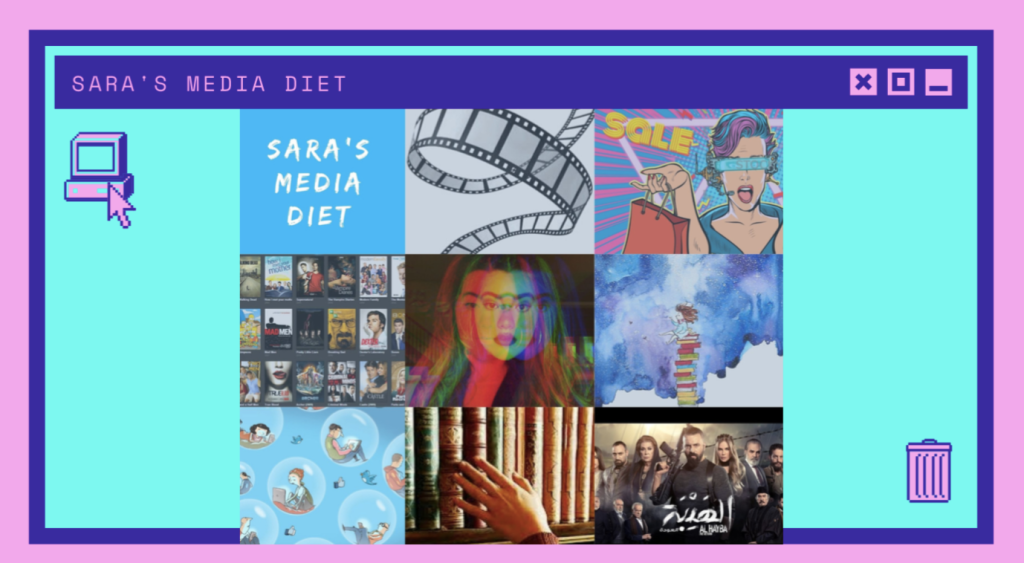
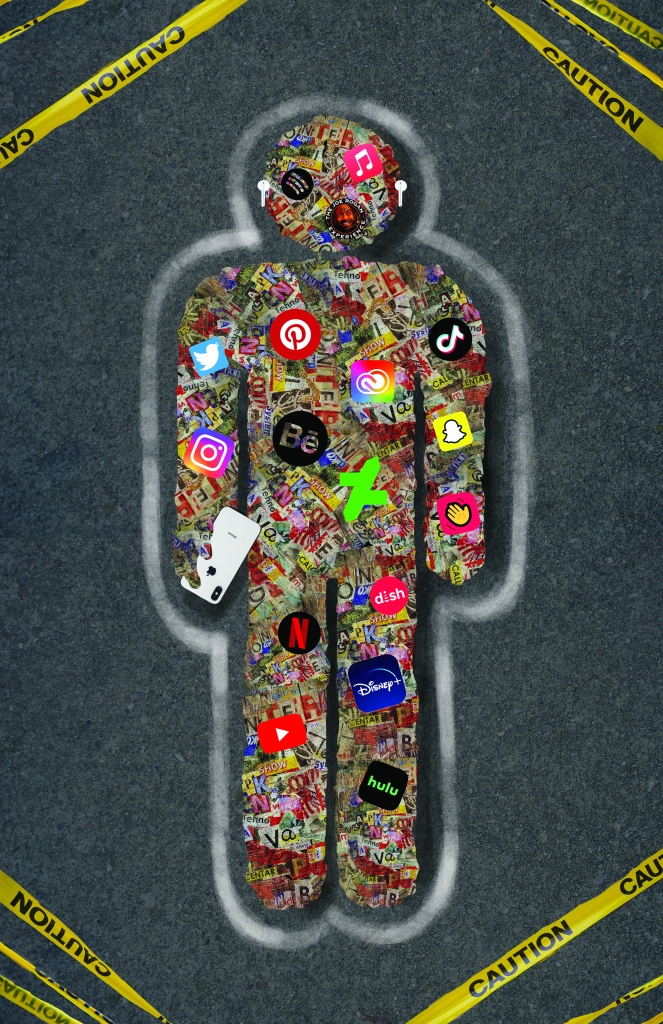
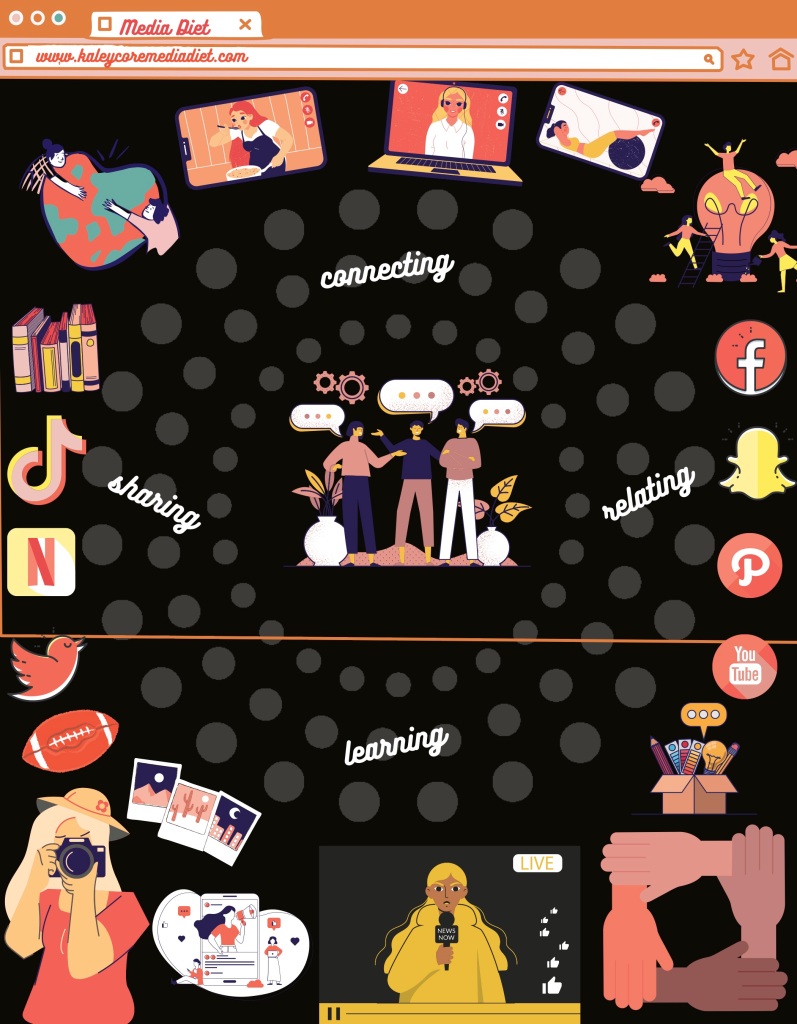
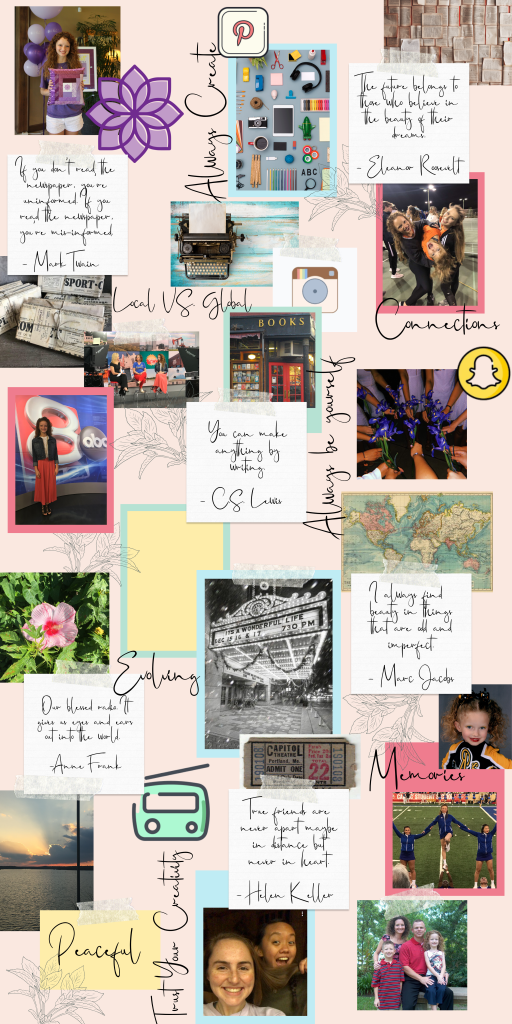
This was a wonderful class, and a wonderful article! I look forward to next semester!
LikeLike
Such a wonderful exploration into how media impacts and influences our lives! I know Maci enjoyed the semester very much. Thank you for your dedication to our TU students ❤️
LikeLike